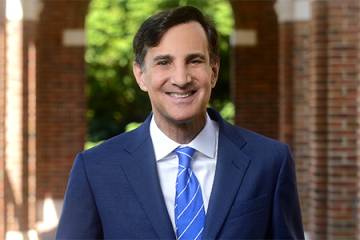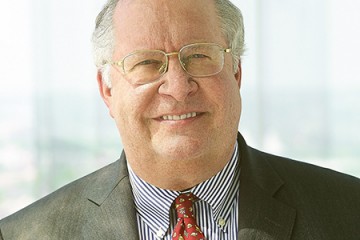A PhD carries significant gravitas, signaling academic achievement and intellectual prestige.
But as a group of former philosophy PhD graduates attested during a panel discussion Thursday, a variety of additional activities and skills can be essential in pursuing jobs after graduation.
The Non-academic Career Panel Discussion—held in the Mattin Center and hosted by the Department of Philosophy and Nancy Kass, vice provost for graduate and professional education—brought together PhD students in humanities fields to discuss career paths outside of academia, and how a background in the humanities can help these students excel in other fields.
"PhD programs have always prepared students to be critical thinkers and to break new ground in their fields of study," said Kass. "But they've also traditionally trained students to enter the academy. In the 21st century, we must adapt to make sure our students learn about, and are prepared for, a range of career paths and are provided the opportunities they need to be able to thrive. We're thrilled to collaborate with the Department of Philosophy to put this panel together."
Speaking on the panel were four philosophy PhD graduates who hold fulfilling professional positions outside of the university setting.
Emily Evans, a senior program officer for science at the Patient-Centered Outcomes Research Institute in Washington, D.C., said she gained critical thinking skills while working toward her PhD in philosophy at Georgetown University, but that she had made strategic choices in her academics to prepare for a career in science. Notably, she pursued a Master of Public Health degree at Johns Hopkins to gain relevant additional skills and to make herself more marketable to potential employers.
Similarly, Hopkins alum Bryan Miller said he began his career planning by figuring out where he wanted to be in five years and working backwards to determine the steps he needed to take to get there. He is now director of the Collage Group, a marketing research and strategy consultant for large corporations.
On the other hand, Daniel Levine, director of research and development at the Baltimore Community Mediation Center, joked that he could not have planned more poorly for his career if he had tried. Instead, the communication skills he learned in school helped him feel comfortable meeting new people and explaining complex ideas to others.
"What's been important to my career has been networking with others and being able to put forward useful ideas," he said. "Past a certain point, nobody cares what your degree was in. What's getting me in the door is having different skills and knowledge and being able to demonstrate that other people."
Matt McAdam, senior acquisitions editor at Johns Hopkins University Press, also spoke on the panel. He urged the student audience—who were all philosophy PhD students save for one who is pursuing a PhD in history—to think about why they decided to pursue PhDs in the first place and to determine what about academia appeals to them. There are many ways to build a fulfilling and intellectual lifestyle without being an academic, he said.
He added that students shouldn't shy away from taking jobs that could be a risk. "If you get a job you don't like, don't worry—go find a new one," he said.
The students in the audience—who were in various stages of their graduate studies, including several who had already begun writing their dissertations—said they were glad to have such a candid discussion about their future careers.
Rachel Waxman, a fifth-year PhD student in the Department of History, said she was glad to hear from people who have successfully transitioned into interesting and dynamic careers.
"The job market is tough, and there are a lot of interesting opportunities out there, so I wanted to hear from people who have gone on to careers outside of academia," she said. "I'm interested in seeing what the options are."
Kevin Powell, who specializes in ethics and is working on a dissertation exploring the value of humanity, said the panel gave him important insights into the job hunt process, particularly the importance of networking.
"I've been extremely busy with my dissertation, but it was good to spend some time thinking about the different options I have for my career path and to hear the panelists talk about how important it is to incorporate networking into my schedule," he said. "That's something I'd like to do more of."
Posted in University News, Student Life
Tagged philosophy, graduate education









